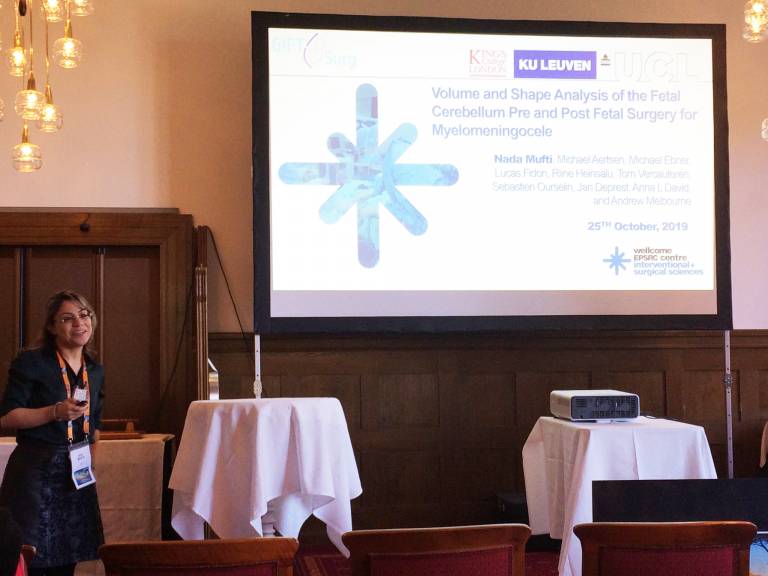Women and Girls in Science: Nada Mufti
11 February 2021
For the International Day of Women and Girls in Science on 11 February 2021 we're celebrating some of the amazing female researchers working at WEISS.

Nada Mufti is an Obstetrics and Gynaecology registrar who is undertaking a Clinical PhD in advancing MRI techniques and applying it to fetal surgery and maternal medicine. This is funded by WEISS, and Nada works in a collaborative team between the Institute for Women's Health, UCLH, Leuven, and the School of Biomedical Engineering and Imaging Sciences.
What is your favourite thing about your job?
I am an obstetrician and gynaecologist, and I have taken time out of clinical practice to do a clinical PhD. The favourite thing about my job is caring for women in one of the most life-changing, and vulnerable periods of their lives which is extremely rewarding to me as a clinician.
What inspired you to work in this area?
I enjoy the variety that my speciality brings. It is a combination of medicine, surgery, and imaging so every day is different, and this has helped me acquire a breadth of skills and knowledge. I also enjoy working in a fast-paced environment within a large team of various disciplines and health professionals.
Describe a typical day at work for you – and how has this changed during the coronavirus pandemic?
As I am now doing a clinical PhD, my typical day is extremely varied. It can involve analysing fetal brain and placental MRI's, using codes and algorithms which I have learnt to use with the help of my supportive engineering colleagues. My research involves co-ordinating MRI's from all over the UK, collaborating with colleagues in Belgium, supervising MRI scans and doing ultrasound scanning in UCLH, writing papers, teaching masters and medical students, travelling for conferences and observing state of the art fetal surgery. During the coronavirus pandemic I was redeployed to clinical practice during the first wave, and therefore paused or reduced my research. After this, any hospital related research was continued remotely from home using email, Zoom and MS Teams. Patient recruitment usually occurred either over phone, or by another colleague present in the hospital such as the research midwifery team.
What has been the biggest challenge of your career so far?
The biggest challenge was moving from a full-time clinical job in Glasgow, to a research job in London. The change of pace and environment was a big challenge but one of the best decisions in my career.
What has been the highlight of your career so far?
Taking the decision of doing a PhD is the highlight of my career. I have worked with some of the best clinical academics and engineering colleagues in the world who have become such inspirational role models to me. I have learnt new skills, such as coding and processing of MRI scans which are extremely invaluable and will definitely help me develop my career further.
What is the best piece of advice that you have received that has helped you in your career?
Perseverance and resilience especially in challenging times will always help you succeed.
What advice would you give to young girls thinking about going into science?
I always look at my female inspirational role models, and say to myself - if they can do it, so can I. If you never try, you will never know what you can achieve.
 Close
Close

